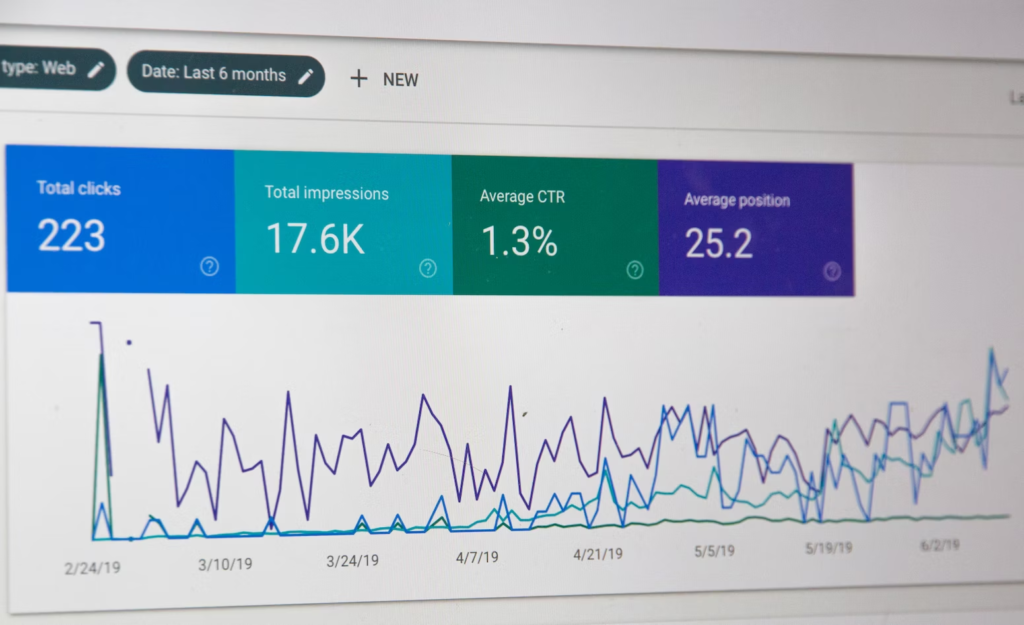
SEO (Search Engine Optimization) is the practice of optimizing websites and content in order to rank higher in Google search results. This guide will cover the fundamentals of SEO such as keyword research, on-page optimization and link building.
At its core, effective SEO advice should help drive more relevant traffic, leads, sales and revenue for your business. This guide outlines proven best practices that will accomplish that objective.
Keyword Research
As one of the initial steps in developing and optimizing a website, conducting keyword research is a vital element. Keyword research (which you can learn about here) involves uncovering search terms used by people when they access search engines such as Google to locate information online. Conducting research reveals useful data such as queries being typed in frequently, the level of competition among similar terms, etc. All this data then allows web designers and optimizers to create better sites to increase chances of ranking higher in search engine results pages.
Start your keyword research by brainstorming a list of potential search terms your customers might enter into a search engine. Brainstorm creatively with others as it will make finding new keywords much simpler. Once your initial list is created, expand it using various online tools available such as Google Suggests feature, Answer the Public, and Yoast’s related searches tool.
Once you have established a set of head terms, take a look at the websites currently ranking for those terms to get an idea of the quality of content they produce; this will give an indication of what quality of posts may compete against your site if opting for optimization on these terms.
Finally, take into consideration long tail keywords that could be relevant to your business as well. These longer-tail phrases contain more specific information about what products or services you’re offering. These have lower search volume but tend to convert better as they speak directly to user needs.

On-Page Optimization
Search engine optimization (https://www.britannica.com/topic/search-engine-optimization) is a set of practices designed to assist businesses with optimizing their websites for search engines like Google. SEO involves improving content and structure on a site in order to increase visibility on search engine result pages (SERPs), leading to increased organic traffic.
SEO encompasses three core aspects: on-page optimization, link building, and keyword research. On-page optimization refers to practices performed directly on website pages – such as title tags, Meta descriptions, and content optimization – that ensure the pages’ contents match those targeted for keywords. This practice ensures relevance between page content and keyword targeting.
An important first step of on-page optimization is conducting keyword research to identify relevant search terms and phrases. This can be accomplished by performing searches on Google or using tools like AnswerthePublic and Ahrefs; alternatively, reviewing competitors’ websites. Once complete, use this data to develop a list of target keywords for use on your webpages.
Once your keyword list is completed, the next step should be optimizing page content. This involves crafting an attention-grabbing page title and using key terms as part of the URL, along with including them within page text content and using heading tags such as h1 and h2 tags to organize and highlight important points.
On-page optimization involves developing an engaging Meta description that will appear below your page title in SERPs, to increase click-through rates and enhance user experience. Including an action call can encourage visitors to take further steps on your site.
On-page optimization can be broken into two main categories: pre-click and post-click. Pre-click optimization focuses on elements visible before searchers click through the SERP listing, such as title tag and Meta description, which must meet Google’s machine learning algorithm for the most relevant search results.

Link Building
Link building is the process of encouraging other websites to link back to yours, which is an integral component of search engine optimization, helping your rank higher in search results. This guide will show you how to do just that while also giving some tips for avoiding spammy link-building techniques.
Links are clickable texts that direct users to another webpage or website. It typically stands out from its surrounding text by being underlined or highlighted with special color to highlight it, while often it is surrounded by quotation marks to denote its hyperlink status.
Not all links are equal when it comes to SEO; some types of backlinks can be more valuable for your content than others. As any Philadelphia area SEO Expert will tell you, links from authoritative sites in your industry will typically provide the greatest SEO value. For instance, if you publish an informative blog post about camping safety precautions on your blog site, other camping-related websites might link back to it; these high-quality backlinks signal search engines that users find your article beneficial and will reward it accordingly in their rankings.
Other forms of links can be less beneficial because they’re more likely to be perceived as spammy and irrelevant to users. For instance, if someone writes a blog post about their new coffee machine and includes your website link as part of it – that wouldn’t qualify as a high-quality link since its relevance would be lost in such context.
Since many questionable link-building tactics have evolved over time, people often turn to dubious means of link building for link gain. One such practice was submitting websites to web directories for links back. While this once offered quick results, Google now considers such practices spammy and may even reduce rankings if Google suspects you of engaging in them.

Content Marketing
Search engine optimization may appear intimidating at first, but its concept can be easily learned. SEO refers to an amalgamation of digital marketing strategies designed to increase a website’s value to its visitors and visibility in search results, from keyword research and on-page optimization through to link building.
SEO also takes into account content of websites when implemented successfully; creating high-quality articles which address questions, solve problems or provide useful information is paramount when developing SEO for a site.
Keyword research is most frequently employed for SEO purposes, though it can also benefit other forms of content marketing and social media campaigns. Understanding which words your target audience uses when searching for products or services you offer allows you to produce targeted content which engages them directly and increases conversion rates.





